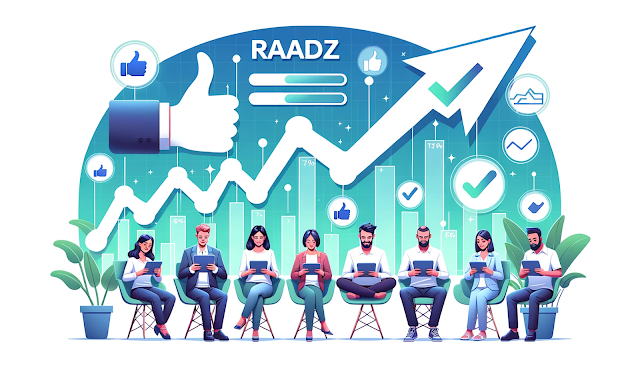Harnessing Honesty: How RAADZ Tackles the Problem of Dishonest Survey Responses
In the world of market research, the quest for accurate and truthful data is a constant struggle. Traditional survey methods, while useful, have long been plagued by the problem of dishonest responses. Respondents may, consciously or subconsciously, skew their answers for a variety of reasons, from social desirability bias to fear of backlash for controversial opinions. This leads to inaccurate data, which in turn can lead businesses astray, causing them to make decisions based on a distorted reality.
This is where RAADZ, an innovative survey solution, steps in. RAADZ is revolutionizing the survey landscape by providing a unique platform that encourages honesty, leading to more reliable market research data.
The Problem of Dishonest Responses
Before diving into RAADZ's approach, it is crucial to understand the extent of the problem. Dishonest responses in surveys are a significant issue that can severely skew the results. People may provide false information for several reasons. They might want to present themselves in a more positive light (social desirability bias), protect their privacy, or simply because they feel there will be negative consequences for expressing their true opinions.
Regardless of the reasons, the result is the same: a distorted picture of reality. For companies relying on market research to inform their business strategies, this can lead to disastrous results, from failed product launches to inaccurate targeting of advertising campaigns.
RAADZ's Innovative Approach
RAADZ seeks to tackle this problem head-on by turning the traditional survey model on its head. Rather than asking respondents to provide their own opinions directly, RAADZ asks respondents to predict the average answers to survey questions. This subtle shift in the survey's focus dramatically alters the dynamics of response.
When respondents are trying to guess the average answer, they don't feel the same fear of backlash for potentially controversial opinions as they would in a traditional survey. This removes a significant barrier to honesty, allowing respondents to provide answers that are more aligned with their true thoughts and feelings.
Leveraging the False Consensus Effect
Interestingly, even though respondents are trying to predict the average answers, they're actually providing their own honest opinions. This is due to a psychological phenomenon known as the false consensus effect. This effect is the tendency for individuals to overestimate the extent to which others share their beliefs and behaviors.
In the context of RAADZ, respondents, in their attempt to predict the average answer, naturally gravitate towards their own beliefs and opinions, believing them to be more widespread than they might actually be. In this way, RAADZ cleverly leverages the false consensus effect to elicit more honest responses.
The Power of Gamification and Rewards
Another key element of RAADZ's approach is the use of gamification and rewards. Respondents are ranked based on the accuracy of their predictions, and they earn rewards based on their standing. This encourages thoughtful and careful consideration of each question, leading to more accurate responses.
By turning the survey process into a game, RAADZ not only makes the process more enjoyable for the respondent, but also creates a sense of competition. This can motivate respondents to take the survey more seriously, leading to more thoughtful and, by extension, more honest responses.
Conclusion
In conclusion, RAADZ's unique approach to surveys offers a promising solution to the problem of dishonest responses in traditional surveys. By asking respondents to predict the average answer, leveraging the false consensus effect, and incorporating elements of gamification and rewards, RAADZ encourages honesty in a way that traditional survey methods simply can't match. Get started today at https://partner.raadz.com
#MarketResearch #SurveyInnovation #Gamification #HonestData




Comments
Post a Comment